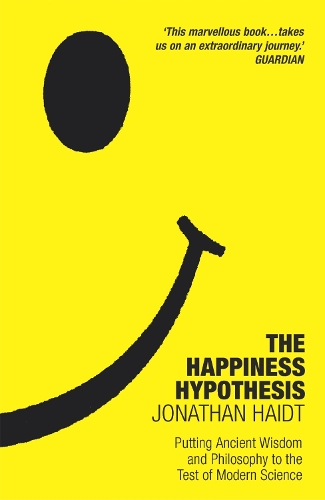The book delves into the dual nature of happiness, exploring both its positive and negative aspects. It also examines love and attachments, providing a comprehensive view of human emotions.
The reviewer highlights Haidt's fascinating examination of the yin and yang of happiness, which they find particularly compelling. They appreciate the book's exploration of love and attachments, which adds depth to the understanding of happiness. The reviewer suggests that Haidt's insights can help readers navigate the complexities of human emotions and relationships. They also note that the book's interdisciplinary approach makes it a valuable resource for anyone interested in psychology, philosophy, or spirituality.
Quick quotes
Midway through the book, Haidt hits high stride with a fascinating examination of the yin and the yang of happiness.
Next up is a look at love and attachments;
Haidt's insights are both profound and practical.
